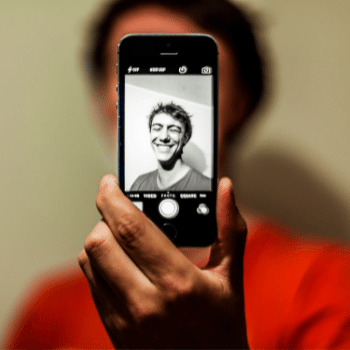Photos on social media: be careful with what you post!
 Social media, since the time of the late Orkut, are excellent tools for you to stay connected with friends and family, facilitating communication and sharing important moments in your life. Oops! It is precisely in this sharing of important moments that cybernetic risks reside which, unfortunately, still go unnoticed by many internet users. After all, the time set aside to go on Facebook, Instagram, and similar platforms represents a few minutes of rest in our busy daily routines — so it's understandable that users forget about security practices.
Social media, since the time of the late Orkut, are excellent tools for you to stay connected with friends and family, facilitating communication and sharing important moments in your life. Oops! It is precisely in this sharing of important moments that cybernetic risks reside which, unfortunately, still go unnoticed by many internet users. After all, the time set aside to go on Facebook, Instagram, and similar platforms represents a few minutes of rest in our busy daily routines — so it's understandable that users forget about security practices.
It turns out that, as hard as it is to believe, a simple photo posted on your profile can serve as ammunition for a cybercriminal to scam you. We often share more information than we should on social media and, based on the collection, analysis, and study of such information, a criminal is able to discover all kinds of details about a potential victim. Your personal tastes, your daily commutes, your favorite football team, that restaurant you visit weekly… Stop, think and look at your own profile: how much do you reveal about yourself?
This, of course, without mentioning the tragic episodes in which parents end up involving family members or friends in this mess. A simple photo of your children in a school uniform reveals precisely what institution they attend — something very dangerous since there are criminals willing to commit crimes in the physical world. In addition, innocent-looking papers and documents can reveal addresses, phone numbers, emails, and other information that, if compiled, facilitate fraud and identity theft. It's like you're causing a data leak yourself!
Facilitating cloning
More than revealing small snippets of personal information that enable cybercriminals to put together a real “puzzle” of their victims, it is also common for inattentive internet users, notwithstanding the impacts of this attitude in the heat of the moment, to publish photos of newly-bought tickets to concerts or travel destinations. We understand that you're excited to see the band you love so much or to visit that exotic destination, but did you know how easy it is to clone these admittance or boarding passes? QR codes, barcodes, other details… Everything!
And please, let's remember the trend — which luckily seems to have passed, but it's always good to be safe — of taking a picture with the most trendy credit card of the moment just to show off being part of a select group. Be aware that the cybercriminal will also be part of this select group: he or she will copy the numerical data of the card and clone it at the speed of light. It's better to show off your new card with a legitimate purchase rather than let it be maxed out right away from a fraudulent purchase, right?
Learn one more safety habit!
In the end, it all comes down to one word: attention. You don’t need to be paranoid to the extreme; the problem is posting without thinking. Therefore, before posting a photo on social media, think about the following points:
-
Does this photo somehow reveal any personal information or characteristic (or of someone else portrayed in it) that I don't want to be made public?
-
Does this photo somehow reveal any information about me and/or my habits, and/or habits of people who also appear in it, that can be used to damage our physical integrity?
-
Does this photo portray, even if unintentionally, any document, post-it, report, various notes, and derivatives that are sensitive information, especially regarding my work?
-
Does this photo depict any document that can be cloned by other people or does it contain information that, if compiled, can represent a risk to my privacy?
Was the answer “no” to all the above? Then go for it. It seems like a tiring thing to do, but over time, it will become perfectly natural, and you'll quickly review these questions in your head whenever you press the “Publish” button on a social network. So practice and implement this safety habit — it'll be good for you, your friends, your family, and your business!
